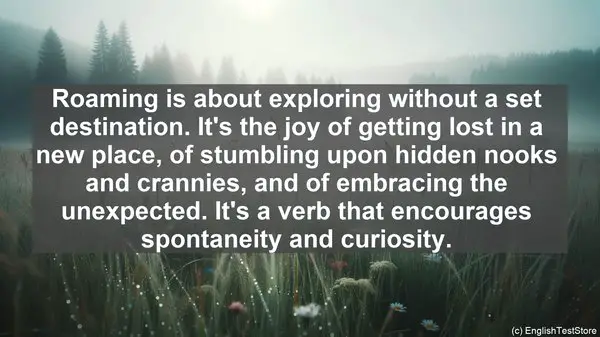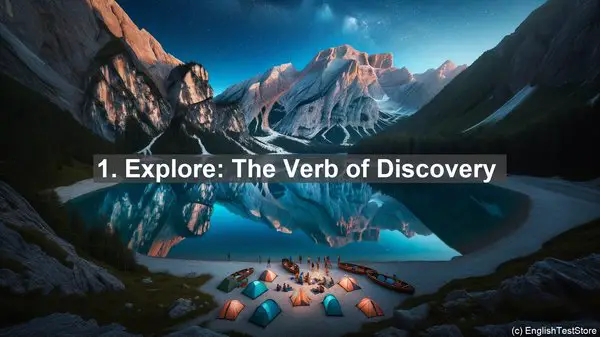Introduction: The Importance of Descriptive Verbs
When it comes to describing our outdoor adventures and activities, using the right verbs can make all the difference. They add depth and vividness to our stories, allowing others to truly imagine the experiences we’ve had. Today, I’ll be sharing with you the top 10 English verbs that are perfect for this purpose. Let’s dive in!
1. Explore: The Verb of Discovery
To explore is to venture into the unknown, to seek out new places, and to discover hidden gems. Whether it’s a dense forest, a bustling city, or a tranquil beach, when you explore, you’re not just seeing, but actively engaging with your surroundings.

2. Trek: The Verb of Long Journeys
Trekking is all about embarking on a challenging, often long-distance journey on foot. It’s not just a walk; it’s an adventure in itself. From ascending steep mountains to crossing vast valleys, every step of the trek is filled with anticipation and awe.
3. Dive: The Verb of Underwater Exploration
Diving takes you to a whole new world beneath the surface. As you descend into the depths, you’ll encounter vibrant coral reefs, graceful marine creatures, and the serenity of an underwater realm. It’s an experience that’s both humbling and exhilarating.
4. Camp: The Verb of Outdoor Living
Camping is the art of immersing yourself in nature. It’s about setting up a temporary home amidst the wilderness, where the sounds of chirping birds and rustling leaves replace the usual urban cacophony. It’s a chance to disconnect from the modern world and reconnect with the simplicity of nature.
5. Glide: The Verb of Smooth Movement
Glide is often associated with activities like skiing or ice skating. It’s that effortless, almost poetic motion where you seem to be floating on the surface. It’s a verb that perfectly captures the grace and fluidity of certain outdoor pursuits.
6. Conquer: The Verb of Overcoming Challenges
Conquering is about facing and triumphing over obstacles. It’s that feeling of reaching the summit after a grueling climb or completing a difficult trail. It’s not just about physical strength, but also mental resilience and determination.

7. Paddle: The Verb of Water Travel
Paddling is the rhythmic motion of propelling a boat or a kayak through the water. It’s a verb that’s synonymous with serenity, as you navigate calm lakes or gentle rivers, surrounded by the beauty of nature.
8. Roam: The Verb of Aimless Wandering
Roaming is about exploring without a set destination. It’s the joy of getting lost in a new place, of stumbling upon hidden nooks and crannies, and of embracing the unexpected. It’s a verb that encourages spontaneity and curiosity.
9. Scale: The Verb of Vertical Ascents
Scaling is about climbing, but not just any climb. It’s about tackling steep cliffs, towering mountains, or majestic rock formations. It’s a verb that signifies both the physical challenge and the breathtaking views that come with it.
10. Observe: The Verb of Deliberate Noticing
To observe is to do more than just see. It’s about taking the time to notice the intricate details, the subtle changes, and the unique aspects of your surroundings. It’s a verb that encourages mindfulness and appreciation.
